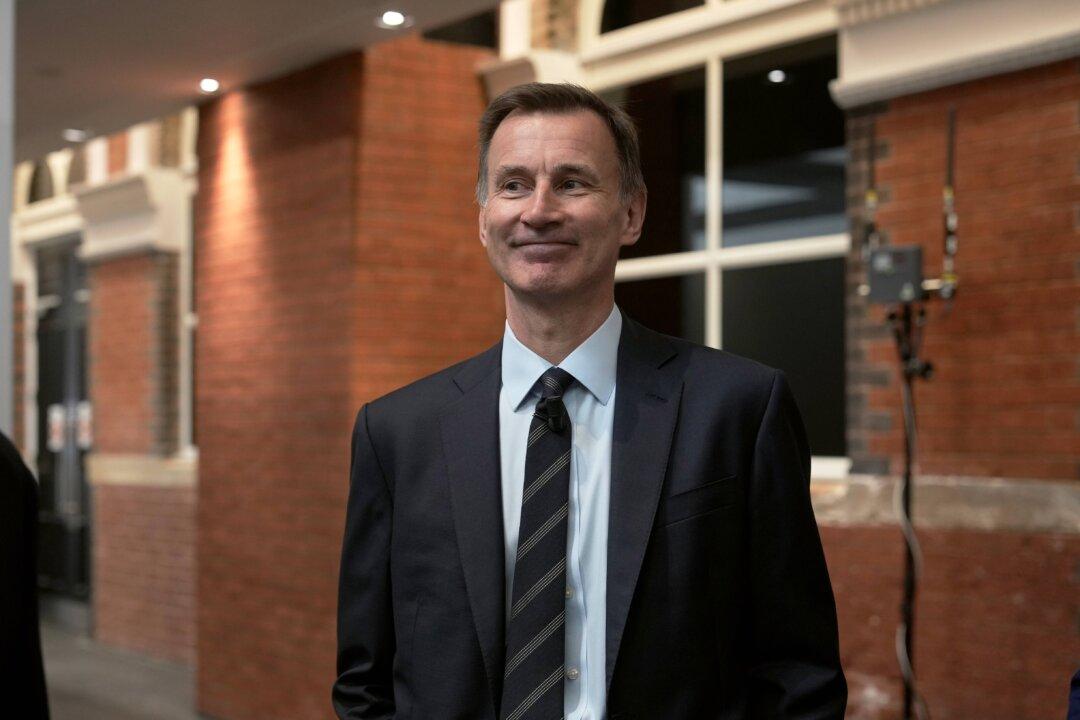The government underestimated the impact of increasing the money supply during the COVID-19 pandemic on inflation, Chancellor Jeremy Hunt has said.
Mr. Hunt was speaking at the Centre for Policy Studies (CPS) fringe event at the Conservative Party Conference on Wednesday, where he discussed tax cuts, high inflation, and public debt.





